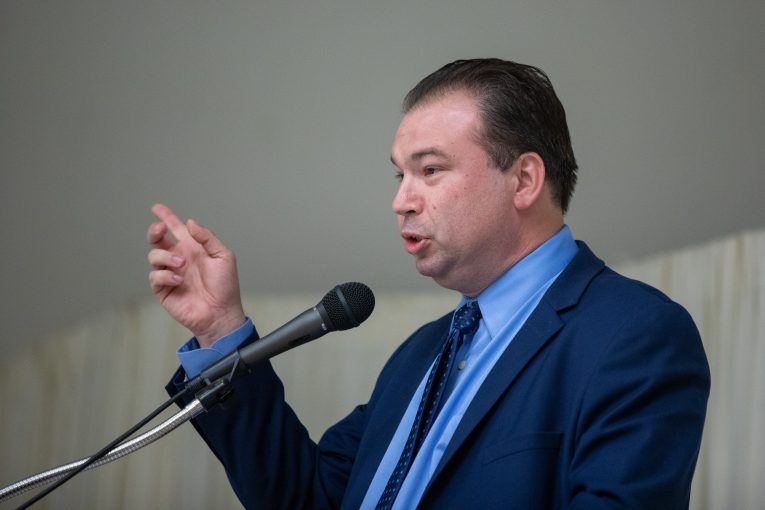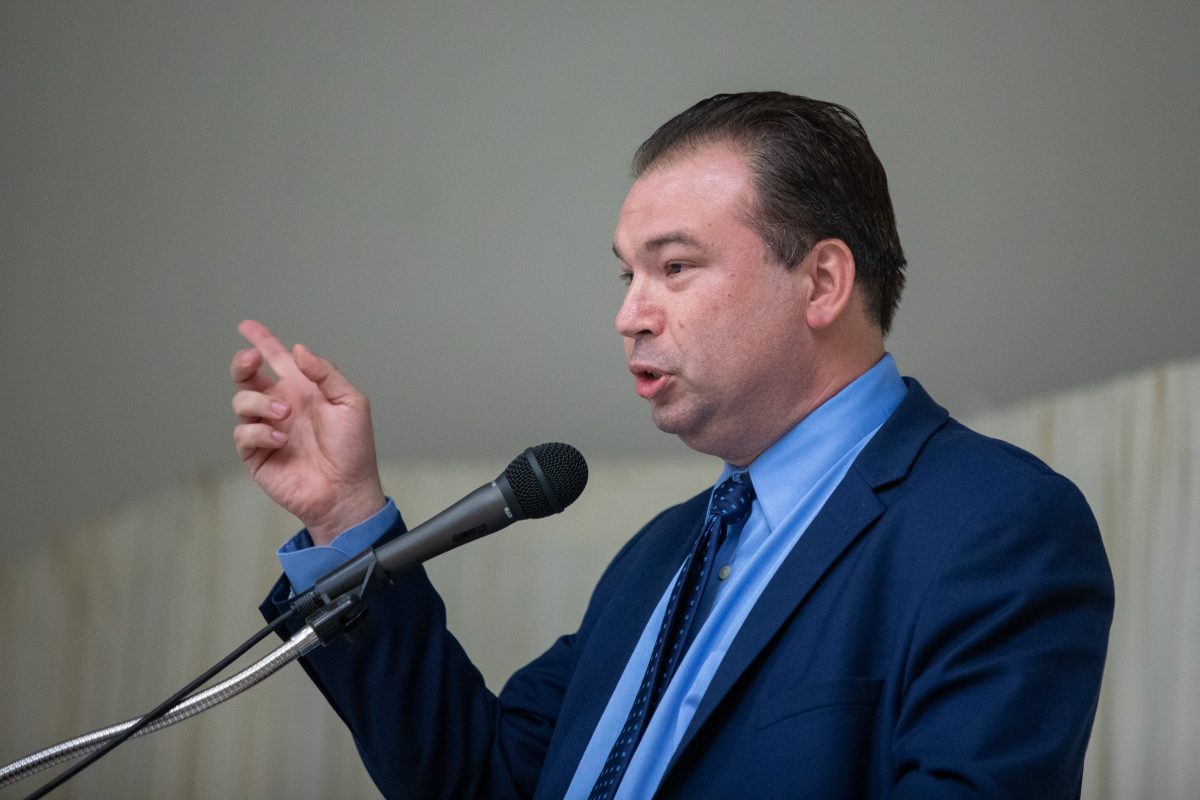

By Jeffrey Deskovic
“Looking back” will feature reprints of articles that Jeff previously wrote while a columnist at The Westchester Guardian, which encompass topics that are applicable here in CA as well as across the country and not simply applicable to NY.
On August 25, 2010, an Op Ed appeared in the New Orleans Times Picayune voicing support for a newly enacted zero-tolerance policy for New Orleans Police Department officers who lie on the job. A police officer in the Big Easy who lies or files a false police report can be fired immediately.
The Times Picayune editorial quoted Police Superintendent Serpas, “If you lie, you die. If you tell this Police department a lie about anything, you will be terminated.”
According to the editorial, “The old department rules allow officers who are untruthful a couple of times to get away with just reprimands. The new rule for disciplining rogue officers is part of a 65-point police reform plan the superintendent and Mayor Mitch Landrieu announced this week. The measures are a welcome strategy to try to turn around one of the worst and most brutal police departments in America.”
The paper reported that, “Recently, 18 current and former NOPD officers have been charged with killing innocent civilians around the time of hurricane Katrina or with covering up the crimes. The revelations have been despicable, and five officers have pleaded guilty so far. Additional federal investigations of police brutality are expected to yield even more indictments.”
This revolutionary policing change came about after Mayor Landrieu implemented a police reorganization “aimed at focusing resources on violent crime and community policing,” according to the Times Picayune, and requested the Justice Department audit questionable crime statistics. Controls “designed to give early warning about troubled officers” were “largely dismantled” under the administration of former New Orleans Mayor Ray Nagin, according to the paper.
Police officers are no better or worse than other people who work in different occupations. There are good cops and bad cops. Some cops are heroes, some frame the innocent, and some commit crimes, even murder. Like the rest of us, police officers tell the truth and police officers lie.
It is frightening to think officers committed large scale murder during a crisis like Katrina. In a crisis, the public depend on the police even more than usual. Each and every officer found guilty should receive the maximum penalty allowed by law. Nothing threatens society more than when law enforcers become law breakers.
The Serapas-Landrieu zero tolerance policy will go a long way to prevent wrongful convictions. Police can commit perjury by commission and omission. For example, a cop can omit critical details about how he obtained a confession. Such lies of omission affect the judge’s ruling whether to admit the confession in evidence as voluntary or exclude it as the product of police overreaching. Likewise, such lies impact on a jury’s view of the confession. In many wrongful conviction cases, the innocent defendant was convicted based on his confession alone.
Retired Det. Thomas McIntyre did that in my case.
A police officer can plant and/or fabricate evidence, as came to light in the Troop C scandal. In April 1993, New York State Police Lt. Craig D. Harvey admitted he and another trooper lifted fingerprints from items the suspect, John Spencer, touched while in Troop C headquarters and attached them to evidence cards. Harvey later claimed he pulled the fingerprints from the murder scene. Spencer was wrongfully convicted and sentenced to fifty years to life in prison.
Shirley Kinge, who admitted using a stolen credit card, was also victimized by Troopers David L. Harding and Robert M. Lishansky of Troop C. They admitted they took Kinge’s finger-prints from her work place, but later claimed they found the prints on gasoline cans. She was wrongfully convicted of burglary and arson and sentenced to 17-44 years in prison. She served two and a half years before the court learned the evidence against her was fabricated by lying troopers.
Harvey, a sixteen-year veteran of the force, headed the identification unit. He pled guilty on July 29, 1993, to fabricating evidence in three cases and was sentenced to 21⁄2-7 years in prison. On December 16, 1992, Harding, a seven- year veteran, was sentenced to 4-12 years in prison and fined $20,000 for fabricating evidence in four documented cases. On June 10, 1993, Lishansky, an eleven-year veteran, was sentenced to 6-18 years for fabricating evidence in twenty-one cases.
Police officers can coerce witnesses to lie in exchange for false testimony, as was revealed in the Jabbar Collins case in Brooklyn. Collins served sixteen years in prison before he was freed. Fernando Bermudez was convicted based on false, police-coerced testimony. He served eighteen years before a judge declared he was innocent and had been framed.
Accurate verdicts depend on the truth. Police lying frustrates the chief purpose of every trial, to reveal the truth.
To date, there have been 258 DNA-proven wrongful convictions. There many more cases where the innocent were exonerated without DNA evidence. It is essential all possible measures be taken to prevent such miscarriages of justice. A zero-tolerance policy for police lying would help immeasurably.
Consider these statistics: according to The Innocence Project, thirty-seven of the first seventy-four DNA-proven wrongful convictions involved police misconduct. In those cases, the misconduct included: suppression of exculpatory evidence in 34% of cases; undue suggestiveness in 33%; evidence fabrication in 11%; coerced witness in 9%; coerced confessions is 8%; and other misconduct in 5% of cases.
It is highly commendable New Orleans officials voluntarily instituted the zero-tolerance policy. All mayors and/or police superintendents should follow the New Orleans example and inaugurate such policies nationwide. Legislation should be passed to make zero-tolerance for police lying mandatory in states across the country. Resistance to such legislation would bespeak of a less than a serious commitment to preventing wrongful convictions and ensuring law enforcement operates with the highest integrity. Likewise, Congress should pass parallel federal legislation applicable to federal law enforcement agents. All law enforcement at all levels in all jurisdictions must be truthful. Anything less compromises the integrity of the American criminal justice system. Police lying not only frustrates justice, it also violates civil rights under color of law because victims are deprived of their liberty without due process. At a minimum, the process due each one of us charged with an offense is honesty and integrity in those leveling the charge. It is hard to see any downside to a zero- tolerance policy. Civilians who make false statements when signing bank documents, loan applications, mortgage notes, affidavits and the like are subject to imprisonment for perjury and other crimes. Police should not be treated any differently. If anything, police lying is an even graver wrong because, when police officers lie, the public trust is betrayed.
“Jeffrey Deskovic, Esq, MA, is an internationally recognized wrongful conviction expert and founder of The Jeffrey Deskovic Foundation for Justice, which has freed 9 wrongfully convicted people and helped pass 3 laws aimed at preventing wrongful conviction. Jeff is an advisory board member of It Could Happen To You, which has chapters in CA, NY, and PA. He serves on the Global Advisory Council for Restorative Justice International, and is a sometimes co-host and co-producer of the show, “360 Degrees of Success.” Jeff was exonerated after 16 years in prison-from age 17-32- before DNA exonerated him and identified the actual perpetrator. A short documentary about his life is entitled “Conviction“, and episode 1 of his story in Virtual Reality is called, “Once Upon A Time In Peekskill“. Jeff has a Masters Degree from the John Jay College of Criminal Justice, with his thesis written on wrongful conviction causes and reforms needed to address them, and a law degree from the Elisabeth Haub School of Law at Pace University. Jeff is now a practicing attorney.
